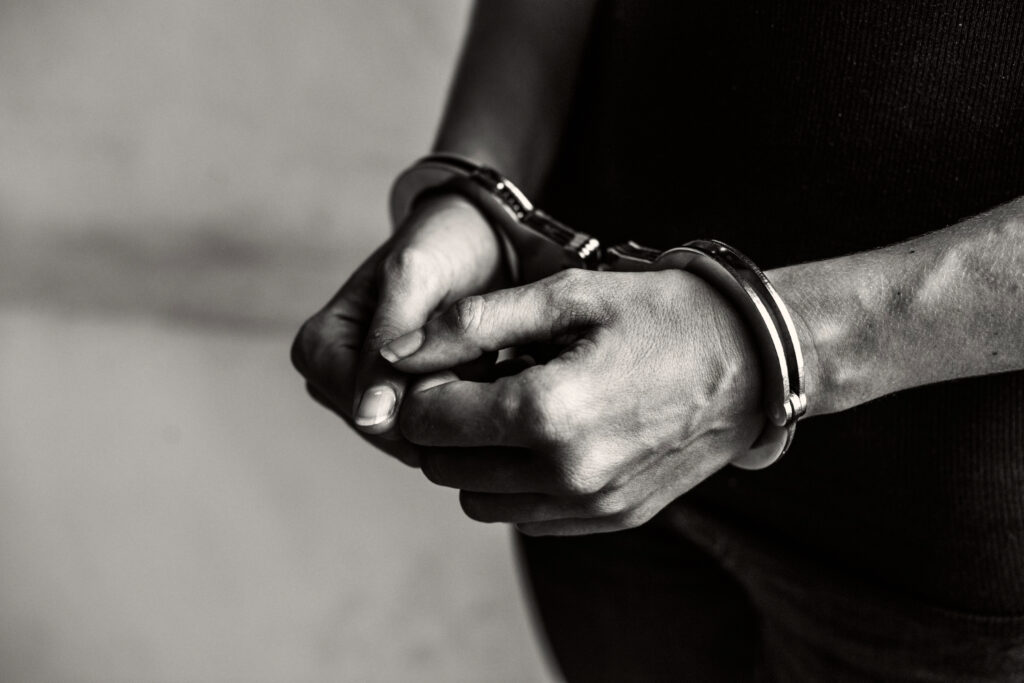A fault in procedure, such as a wrongful arrest in India, is not a mere procedural matter but a serious violation of an individual’s fundamental human rights. Picture committing a crime and being taken into custody, detained for no reason, and denied legal support. Unfortunately, such situations are all too common. If you or someone you know lands himself in the grips of the law, you should have a handle on your legal rights when you or someone you know is arrested.
This comprehensive 2025 guide narrates the definition of wrongful arrest in India, do justice with your legal rights during arrest, explains the wrongful arrest procedure, and gives you actionable legal advice for citizens combating such a distressing situation.
What is a Wrongful Arrest in India?
In India, a person’s arrest without legal ground, due process, or judicial authorization is called a wrongful arrest. This is a direct violation of Article 21 of the Indian Constitution, which is the right to life and personal liberty.
Examples of Wrongful Arrest:
- Arrest without any FIR or warrant in bailable or cognizable cases.
- Arrest on mistaken identity, false allegations, and planted evidence.
- The detention of someone without informing the accused that he has the right to be arrested.
- Section 57 of the CrPC requires that the person be brought before the magistrate within 24 hours.
As per the National Crime Record Bureau (NCRB) 2023 report, more than 9,000 arrests were proved later to be ineffective due to insufficient evidence, or during the process of making the arrest, so it might be considered an example of undertaking a wrongful arrest procedure.
Understand Your Legal Rights During Arrest
Every Indian citizen has the power of the law. Arrest is something we should all know our legal rights while under it to protect us from police overreach and wrongful detention. When law enforcement makes an arrest, there exist specific essential rights for the arrested person, which consist of:
Right to Know the Grounds of Arrest
A police officer performing an arrest under Section 50 of the CrPC must present the detention reason to the arrested person in their language comprehension.
Right to Legal Representation
Article 22(1) of the Constitution provides you with the right to use a lawyer of your preference and seek their defense services.
Right to Be Produced Before a Magistrate
According to the legal code, the accused person needs to stand before a magistrate within the first 24 hours following arrest. Failure in this situation constitutes unlawful arrest procedures that break the law.
Right to Inform Family or Friends
The guidelines set by the D.K. Basu direct police to notify the arrest of an individual to their family friend about their detention location.
Right Against Self-Incrimination
Through Article 20(3) of the Constitution, the law protects your right to refuse to make confessions or self-incriminating testimonies against yourself.
Right to Medical Examination
The law prescribed in section 54 of the CrPC requires two mandatory medical examinations, both during arrest and periodic health checks during the detention period.
The law confers these rights upon arrestees because they constitute fundamental safeguards that function as enforcement mechanisms against mistreatment, especially during wrongful arrest incidents in India.
What to Do If You Face a Wrongful Arrest in India
Your reaction becomes a problem regardless of your innocence because panic and aggression strengthen an existing difficult situation. The following procedures should be followed as a step-by-step process:
Stay Calm and Ask for Justification
You need to demand that your arresting officers provide you with grounds for their detention. Record it if possible. A legitimate reason to arrest is required by law to avoid classifying it as an incorrect detention procedure.
Demand a Lawyer
The first step must be to request to speak to legal representation right away. Denial to grant your lawyer’s request constitutes a violation of your rights when under arrest.
Contact a Family or Friend
Under legal rights, you have permission to share your arrest details, along with your current location, with the person you trust. Your right to communicate with others remains protected because incommunicado detention marks a sign of wrongful arrest in India.
Do Not Sign Anything Under Pressure
Any documents, including confessions, must receive legal oversight before you become a signer. During your arrest, any statement or admission obtained through force is considered invalid and violates your constitutional rights.
Request a Medical Check-Up
Before signing anything, ask to receive a medical check-up when you are wounded or worry about mistreatment. A medical exam creates important evidence that becomes necessary after filing a complaint.
Legal Remedies for a Wrongful Arrest in India
A wrong arrest will create an extremely difficult experience for the victim. India offers several legal options through its framework to protect citizens in such situations. Here’s what you can do:
Habeas Corpus Petition
A Habeas Corpus petition enables you and others detained without a legal basis to seek relief from the Supreme Court as well as the High Court. Under this procedure, police need to provide verification of detention, or the person must be set free promptly.
File a Criminal Complaint
The arrest of public servants who conduct wrongful arrest procedures falls under IPC Sections 166, 167, or 220. Thus, enabling you to file complaints or FIRs against them.
Seek Compensation
In landmark cases like Rudul Sah v. The State of Bihar received compensation money from the Supreme Court due to illegal detention of individuals. Victims who experience wrongful detention in India must receive compensation that includes reimbursement for earnings lost, together with therapy expenses, and compensation for damage to their reputation.
Approach Human Rights Commissions
The NHRC (National Human Rights Commission) serves as a body that addresses reports about wrongful detention and police abuses, and custodial violence.
People should consult licensed experts or visit legal aid centers as their first step to begin available remedies.
Case Study: D.K. Basu vs. State of West Bengal (1997)
The Court established essential protections for arresting people correctly throughout India through this case.
Case Summary:
The social worker D.K. Basu sent a letter to the Supreme Court, which drew attention to both illegal arrests along deaths in judicial arrest facilities throughout India. This case received writ petition treatment from the Court, which issued essential guidelines.
Key Guidelines:
- All witnesses who sign the arrest memo need to authorize their signature.
- The record needs to include the precise details regarding arrest time and location.
- An arrestee holds the right to meet their lawyer while being interrogated by authorities.
- Medical check-ups every 48 hours during detention.
These regulations have turned into obligatory laws that provide a legislative structure to protect people from improper arrest methods. Legal advice that citizens need most frequently comes from this institutional body.
Data on Wrongful Arrest in India (2023–2024)
The National Crime Records Bureau and Human Rights reports indicate the following facts:
- 78,342 arrests made without sufficient evidence.
- The police acquitted 18% of their arrest subjects because no compelling evidence existed to prove their guilt.
- The policing force investigated 2,100 officers on matters of misconduct and forceful actions.
- Thousands of Indian citizens filed wrongful arrest complaints, yet most of them got no reimbursement or police justice in their cases.
The information demonstrates that citizens must learn about their rights when arrested and require qualified legal help if these situations occur.
How to Identify a Wrongful Arrest Procedure
Watch for these red flags:
- No arrest warrant in non-cognizable cases.
- There must be no acknowledgment of the reason that led to the arrest.
- Denial of access to a lawyer.
- No arrest memo or medical exam.
- A tardy presentation to a magistrate falls under wrongful arrest procedures.
If you encounter these signs during an arrest, you should immediately begin searching for legal consultation, since it suggests a wrongful arrest scenario in India.
Legal Support for Students, Women & Marginalized Groups
Students, together with racial and disadvantaged community members, face higher risks of improper arrests
- The Legal Aid Services (NLSA and SLSAs) offer complimentary legal help to individuals without funds for lawyer services.
- Women’s Rights groups provide support for false gender-related accusations.
- University student helplines have developed partnerships with legal clinics, which allow citizens to get prompt legal advice directly after arrest.
These available support systems provide knowledge to prevent young people from becoming victims of wrong arrest procedures.
Final Legal Advice for Citizens
- Carrying valid identification with you and treating police officers with respect form the core of your legal arrest procedure.
- Cutting short information about the arrest is advisable through documentation on your mobile device.
- Physical resistance against arrest must never occur because you should declare your rights instead.
- Disclose your current position to a person you trust without reservation.
- Get in touch with legal help through lawyers or aid immediately.
Conclusion
Your understanding of legal rights allows you to deflect the adverse effects of wrongful arrests in India. When you understand arrest legal rights, learn to detect illegal arrest procedures, and act quickly by seeking attorney help, you will safeguard your liberty and force police to be responsible.
Democratic structures improve their strength when their citizens become empowered. Know your rights. Use them wisely.
FAQs for Wrongful Arrest in India
- 1. What is a wrongful arrest in India?
A wrongful arrest in India occurs when a person is detained by the police without legal justification or due process, violating their constitutional rights.
- 2. What are my legal rights during arrest in India?
Your legal rights during arrest include the right to remain silent, the right to be informed of the reason for arrest, and the right to consult a lawyer.
- 3. What should I do immediately after a wrongful arrest in India?
If you’re a victim of wrongful arrest in India, seek legal advice from a citizen, contact a lawyer, document the incident, and file a complaint or writ petition in court.
- 4. How is wrongful arrest procedure defined under Indian law?
The wrongful arrest procedure refers to unlawful detention without following the proper legal steps outlined in CrPC Sections 41, 50, and 57.
- 5. Can I claim compensation for wrongful arrest in India?
Yes, courts have awarded compensation in many cases of wrongful arrest in India. You can file a writ under Article 226 or 32 of the Constitution for relief.




Thank you for your sharing. I am worried that I lack creative ideas. It is your article that makes me full of hope. Thank you. But, I have a question, can you help me? https://www.binance.com/si-LK/register?ref=LBF8F65G